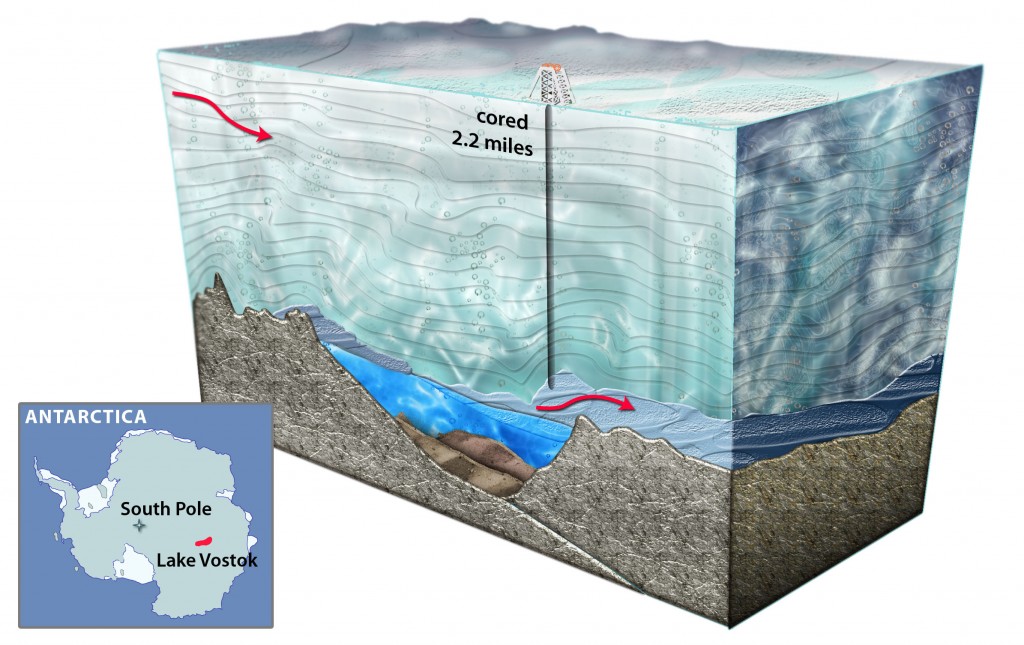It’s looking less likely Russians will reach unexplored sub-Antarctic Lake Vostok this year. A few weeks ago I wrote about their attempt to drill into one of the last frontiers on Earth — one that could be home to incredibly interesting unknown life. Today is the last day — if they don’t make it now, it won’t happen until next season. From Science:
Russian scientists drilling toward Lake Vostok, an enormous body of fresh water sealed off beneath Antarctic ice for 35 million years, have until Sunday to reach their goal before flying out at the end of the summer field season, NPR reports. But with less than 30 meters to go, it’s looking like they’ll fall short and have to resume months later. “They didn’t get to the moon first; they really, really want to be the first people to drill into a subglacial lake. And they want to do it right,” geoscientist Robin Bell of Lamont-Doherty Earth Observatory in Palisades, New York, told NPR.
And here is a more in-depth account from NPR. It reveals there may indeed be some friction over the perhaps characteristic Russian methods noted in my last post on Vostok (anyone who knows about the differences between the US and Russian space programs will understand what I mean. We just have different risk tolerances):
Jim Barnes has been watching this process closely, as head of a nongovernmental organization called the Antarctic and Southern Ocean Coalition.
“Well, to be perfectly honest, we’re not very happy about it,” he says.
One major concern is the Russians have filled the hole they’re drilling with more than 14,000 gallons of kerosene and Freon to prevent it from freezing shut. The Russians have engineered their system so that when they break through into the lake, water pressure from below is supposed to push the drilling fluids up the hole, rather than letting them pour into the lake and contaminate it.
But Barnes is nervous. He’d prefer that the Russians used more environmentally friendly drilling systems that use hot water and don’t need kerosene and Freon.
“Nobody needs to go into this particular lake — or any particular lake — tomorrow. There’s no driving need for it,” Barnes says. “Why take risks that are unnecessary?”
Their plan was to swap out the kerosene for “clean” drilling fluid within a few dozen feet of the lake surface. But what if the surface is higher than they anticipate? Knowing now that hot water was an option, I’m more skeptical of this effort.
The NPR piece goes on to note that the incredible pressurization of the lake’s water by gas (I compared it to a two-liter of soda having a fun night with a paint shaker last time) could mean that once they pop the top, the whole thing could blow like a oil-field gusher in Texas, spewing the contents of the lake into the air over Antarctica until the entire system is depressurized. Fun. I do think it’s important to explore the lake, but safely — for the lake and for us. Whether they make it this year or not, I do hope they get it right.



{ 3 comments… read them below or add one }
Fascinating. Am I the last human on earth to learn about this? Obviously, I need to check your blog more frequently.
so disappointed!
Looks like reaching the lake is definitely out for the year! The Russians did not make it in time.